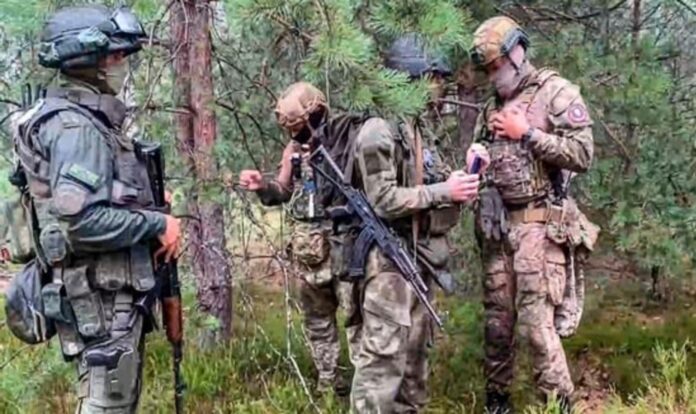In a significant development, more than 100 mercenaries affiliated with the Russian-linked Wagner group have been spotted moving near the Polish border, according to Polish Prime Minister Mateusz Morawiecki’s statement on Saturday. These developments have amplified existing security concerns in Poland, given the backdrop of its membership in both the European Union (EU) and NATO, and the delicate geopolitical situation with neighboring countries Belarus and Ukraine.
The mercenaries’ positioning close to the Suwalki Gap has drawn considerable attention, as this narrow stretch of Polish territory lies between Belarus and Kaliningrad, a Russian enclave separated from the mainland. The Suwalki Gap holds strategic importance as it serves as a vital land corridor for NATO forces to reach the Baltic States. Any potential threat to this region could have far-reaching consequences for regional stability and security.
The situation has been exacerbated by the presence of Wagner group mercenaries in Belarus, following their short-lived rebellion earlier in the summer. Poland has been closely monitoring the developments in its neighboring country, which is a key ally of Russia. As a result, concerns over potential security risks to Poland have grown considerably. Adding to the tensions, the Poland-Belarus border has already been a contentious area for several years, largely due to the influx of immigrants from the Middle East and Africa seeking to enter the EU by crossing into Poland and Lithuania.
Poland’s government has accused Russia and Belarus of using these migrants to destabilize EU countries, branding it as a form of hybrid warfare. In response, Poland has taken measures to fortify its border, including the construction of a high wall along certain sections. Prime Minister Morawiecki’s recent warning regarding the situation becoming even more dangerous highlights the severity of the concerns. He expressed that the mercenaries’ proximity to the Polish border may be seen as a precursor to potential hybrid attacks on Polish territory. As a nation bordering both Russia and Belarus, Poland finds itself in a delicate geopolitical position, requiring constant vigilance to safeguard its security and interests.
During his visit to a southern Polish arms factory, Prime Minister Morawiecki underscored the gravity of the situation, reaffirming Poland’s commitment to bolstering its defenses. The presence of Ukrainian army Leopard tanks being repaired at the factory serves as a reminder of the ongoing conflict in Ukraine, further heightening the need for Poland to remain vigilant. As the situation continues to unfold, both the Polish government and its international allies will closely monitor developments in the region. The presence of the Wagner group mercenaries near the border remains a critical concern, and any potential escalation in tensions could have significant ramifications for regional security and stability.


